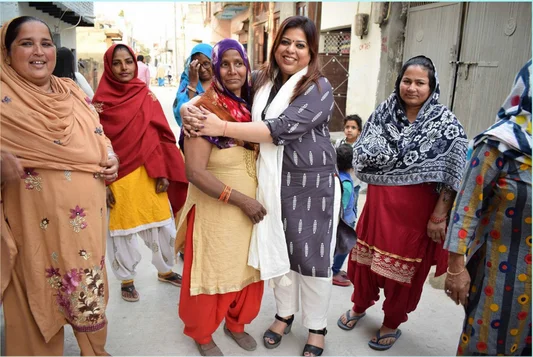
Have you ever wondered what the world would look like if every child grew up understanding the emotions of those around them?
Imagine a society where empathy isn’t just a value taught in schools but a way of life.
The role of mental awareness and the importance of instilling empathy in children cannot be overstated when it comes to shaping a safer, more compassionate world, particularly for women.
The Power of Empathy in Childhood
Children are like sponges; they absorb and learn almost everything from their surroundings. When we nurture their ability to empathise with others, we’re essentially equipping them with the tools to understand and respond to the emotions and experiences of those around them. Empathy fosters kindness, respect, and a deep understanding of others’ perspectives, which are the building blocks of a harmonious society.
Mental awareness, which involves recognising and understanding one’s own emotions and thoughts, is a critical component of this process. When children are taught to be mindful of their feelings and those of others, they become more adept at managing their emotions and reacting thoughtfully in various situations.
Empathy and Women’s Safety in Delhi: A Crucial Connection
One of the most pressing issues in today’s society is women’s safety. Despite significant progress, India remains a place where many women feel unsafe, both in public and private spaces. Teaching empathy from a young age can play a significant role in changing this narrative.
When children are taught to respect and value others, regardless of gender, they grow into adults who are more likely to treat everyone with dignity. Empathy helps to dismantle harmful stereotypes and power dynamics that often contribute to violence and discrimination against women. It encourages boys to see girls as equals and promotes a culture of mutual respect, which is crucial for women’s safety.
Practical Steps to Inculcate Empathy in Children
Delhi-based women rights’ activist, Sandhya Singh, believes inculcating empathy in children requires consistent effort from parents, educators, and society at large. Here are some practical steps to foster empathy and mental awareness in the younger generation:
1. Model Empathetic Behaviour: Children learn by observing the adults around them. By demonstrating empathy in your daily interactions, you set a powerful example for them to follow.
2. Encourage Open Conversations: Create an environment where children feel comfortable expressing their emotions and thoughts. Encourage them to talk about how they feel and why, and help them understand the feelings of others.
3. Use Stories and Media: Stories are a great way to teach empathy. Books, movies, and TV shows that focus on characters from diverse backgrounds and situations can help children understand different perspectives and experiences.
4. Promote Active Listening: Teach children the importance of listening to others without interrupting, and encourage them to ask questions that show they are genuinely interested in understanding others’ feelings.
5. Involve Them in Community Service: Participating in activities that help others can greatly enhance a child’s empathy. Community and volunteer services allow children to see the impact of their actions and understand the challenges others face.
The Long-Term Impact on Society
A society built on empathy is one where individuals are more likely to stand up against injustice, support those in need, and contribute to the collective well-being. When empathy becomes a societal norm, we move closer to a world where everyone, especially women, can feel safe and valued.
Get in touch to volunteer or donate to our women’s NGO in Dwarka.



